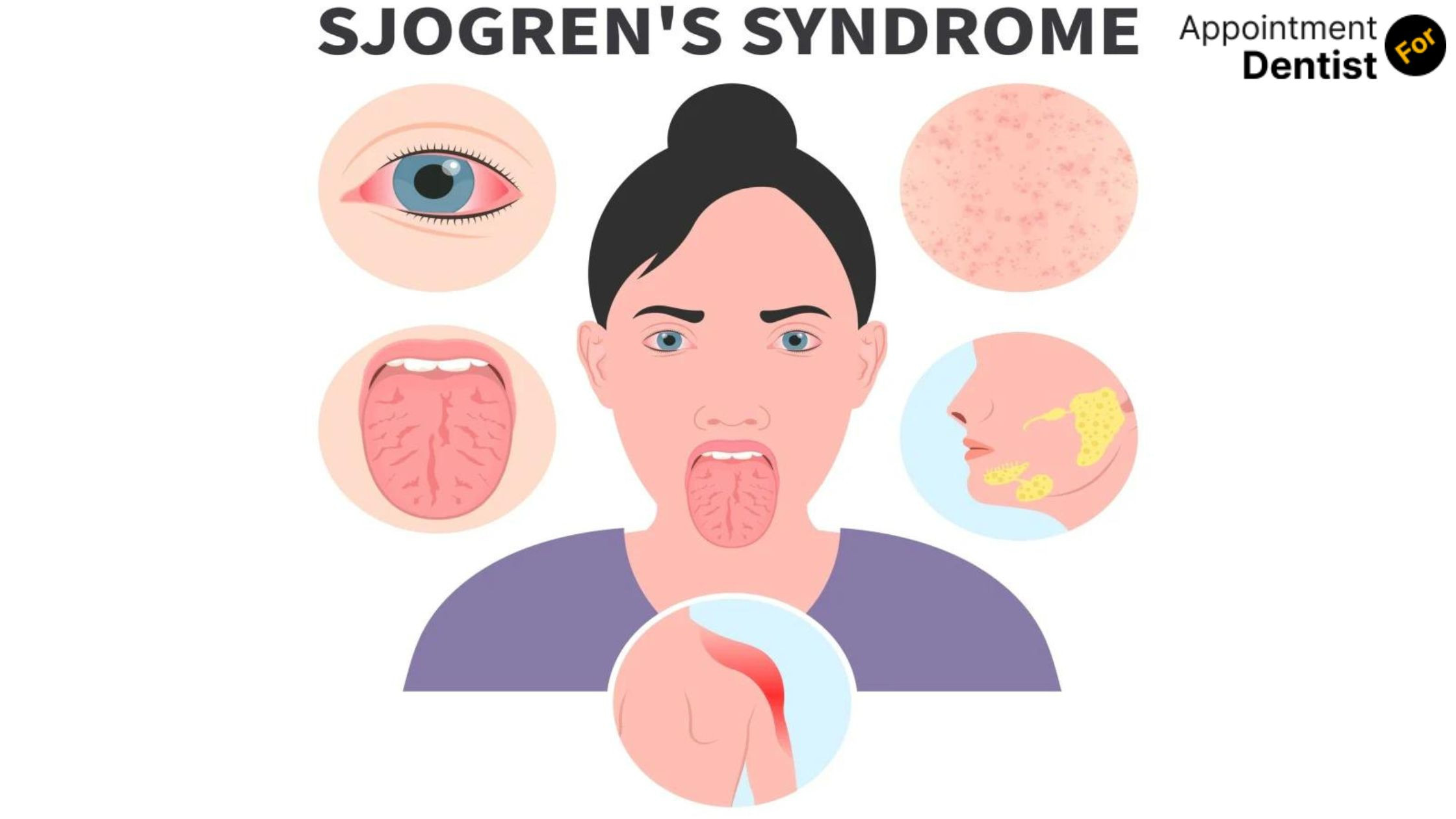Primary Oral Health Care Tips for Dealing with Sjogren's Syndrome
Posted on July 29, 2024 by Admin

It is an autoimmune disorder which majorly directs its attack at exocrine glands of the body, usually those which produce moisture, resulting in xerostomia and dry eyes. Proper care of oral health is a crucial matter for Sjogren's Syndrome patients because the lack of saliva could result in myriad complications involving oral health, such as the eruption of dental caries, gum disease, and oral infections.
What is Sjogren's Syndrome?
A syndrome of this nature follows an attack by one's immune system on glands that produce saliva and tears. It could be primary in nature, completely alone, or secondary in cases where other autoimmune diseases such as rheumatoid arthritis or lupus occur. Decreased saliva does not only cause a great deal of discomfort but also presents some dental complications. Effective management of oral health is, therefore, necessary in subjects with Sjögren's Syndrome.
Oral Health Tips To Manage Sjogren's Syndrome
-
Take Adequate Water
Keep yourself well hydrated. It may reduce dryness of the mouth. One can sip water as a drink in sips which may stimulate production of saliva and keep the mouth moist. Carry a water bottle to keep on sipping fluids from time to time.
-
Try Saliva Substitutes
Saliva substitutes or artificial saliva sprays and gels would then bring some relief to the dry mouth. Such products are close to natural saliva, so they help to moisturize the mouth, easing swallowing and speaking.
-
Chew Sugar-Free Gum or Candy
You can help with saliva production by chewing sugar-free gum or sucking on sugar-free candies. Look for xylitol, a sweetener, which is thought to reduce the chances of developing cavities by neutralizing the acids in the mouth created by a select group of bacteria.
-
Keep Your Teeth and Gums in Good Condition
Good oral hygiene is essential for the patient with Sjogren's Syndrome. Instruct patients to brush their teeth at least twice daily with fluoride toothpaste and to floss once a day to remove food particles and plaque. Patients should have regular dental check-ups, ideally every six months, to monitor their oral health and maintain good oral hygiene health.
-
Use Fluoride Treatments
Fluoride strengthens the tooth enamel and helps to prevent cavities. Speak to your dentist about using fluoride mouth rinses or gels, more so if you often experience dental problems as a result of dry mouth.
-
Avoid Irritating Foods and Beverages
Some foods and drinks can trigger dry mouth or worsen its symptoms. Avoid salty, spicy, or acidic foods and drinks; even alcohol and caffeinated beverages may further dry out your mouth. Opt for softer, moisture foods to make it easier to chew and swallow.
-
Consider Medications
There are medications that can help increase saliva. Medications such as pilocarpine (Salagen) and cevimeline (Evoxac) are frequently prescribed to help decrease the dryness of the mouth associated with Sjogren's Syndrome. Discuss these medications with your health care provider to see if they are appropriate for you.
-
Be Aware of Oral Infections
People with Sjogren's are more prone to oral infections, like candidiasis or thrush. Watch for the appearance of white patches in your mouth or any soreness persisting for several days. Seek prompt treatment from your dentist if necessary.

Conclusion
It is really an important part of living with Sjogren's syndrome: oral health. With all this advice and continuous communication with people in the health field, one will definitely be able to control symptoms well and keep oral health problems at bay. So all should know if you are a victim of Sjogren's syndrome by any chance, then focus foremost on oral health and get professional advice to lead a healthier, more comfortable life.
Faqs
-
1. What are the major symptoms of Sjogren's Syndrome?
Most common symptoms include dry mouth, dry eyes, fatigue, and joint pain. Some people may have swelling of the salivary glands and skin rashes.
-
2. Can Sjogren's Syndrome lead to other health problems?
Yes, Sjogren's Syndrome can increase a person's chance of getting other autoimmune diseases besides having complications, like dental decay, gum diseases, and lymphoma.
-
3. How is Sjogren's Syndrome diagnosed?
Diagnosis often involves medical history, physical exam, blood tests for specific antibodies, and sometimes taking a sample from the salivary glands to find inflammation through a biopsy.
-
4. Is there a cure for Sjogren's Syndrome?
To date, no possible cure has been recognized for Sjogren's Syndrome. However, its symptoms can be dealt with and improved with a few modest lifestyle changes, medications, and routine dental care.
-
5. How can one actually better his/her quality of life with Sjögren's Syndrome?
Good oral hygiene practices; proper mouth hydration; collaboration with the health provider on the use of saliva substitutes; will all clearly improve his quality of life. Checkup intervals and following up on signs and symptoms are also important.
Recent Post
- The Importance of Oral Health Education for Children
- How to Choose the Right Orthodontic Treatment for Adults
- The Link Between Oral Health and Stroke Risk
- How to Address and Prevent Gum Recession
- Innovations in Dental Anesthesia: Pain-Free Procedures
- The Role of Saliva in Oral Health: Functions and Disorders
- Exploring Holistic Dentistry: What You Need to Know
- How Oral Health Affects Your Immune System
- The Benefits of Using Dental Probiotics
- Oral Health and Pregnancy: Myths and Facts